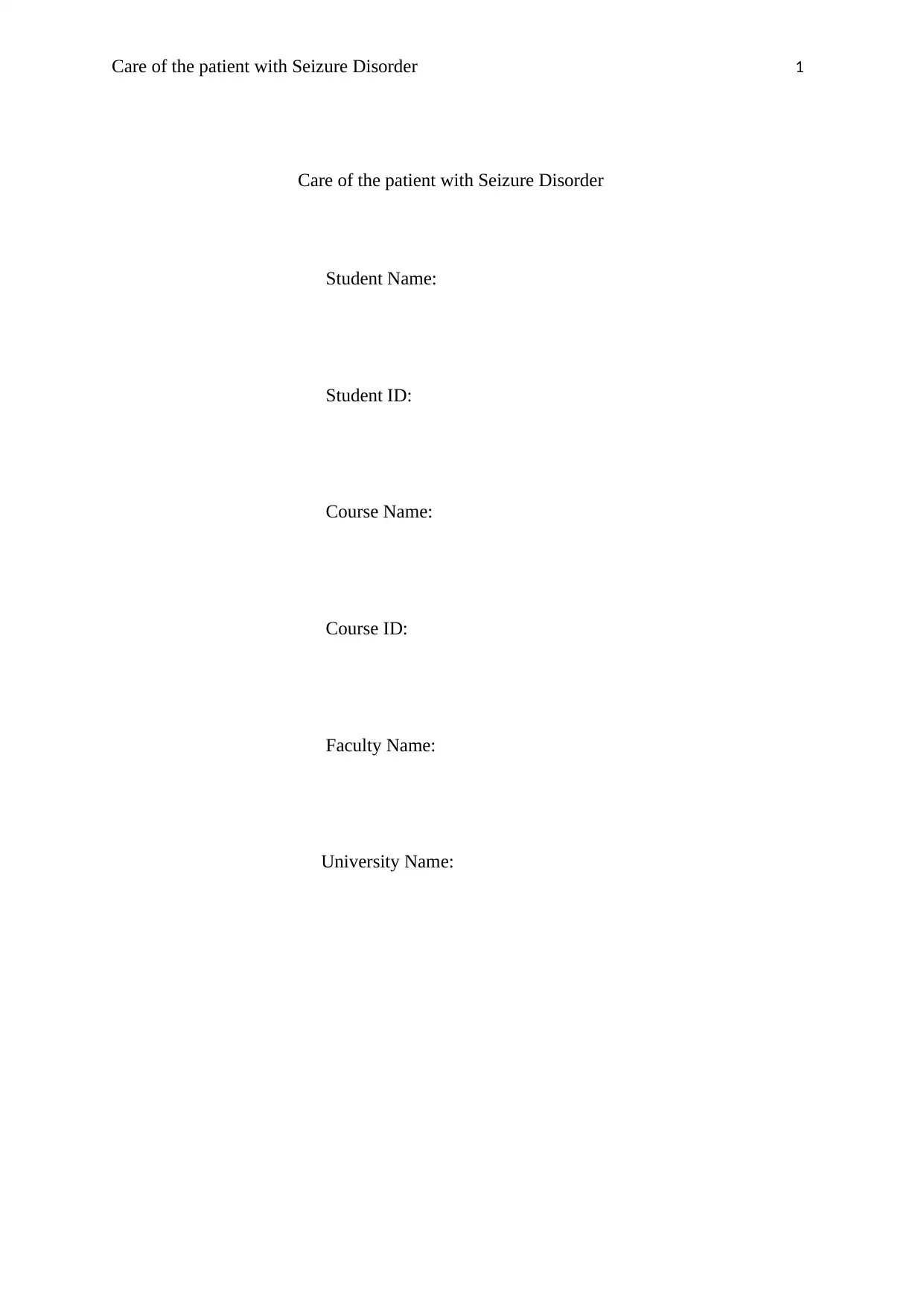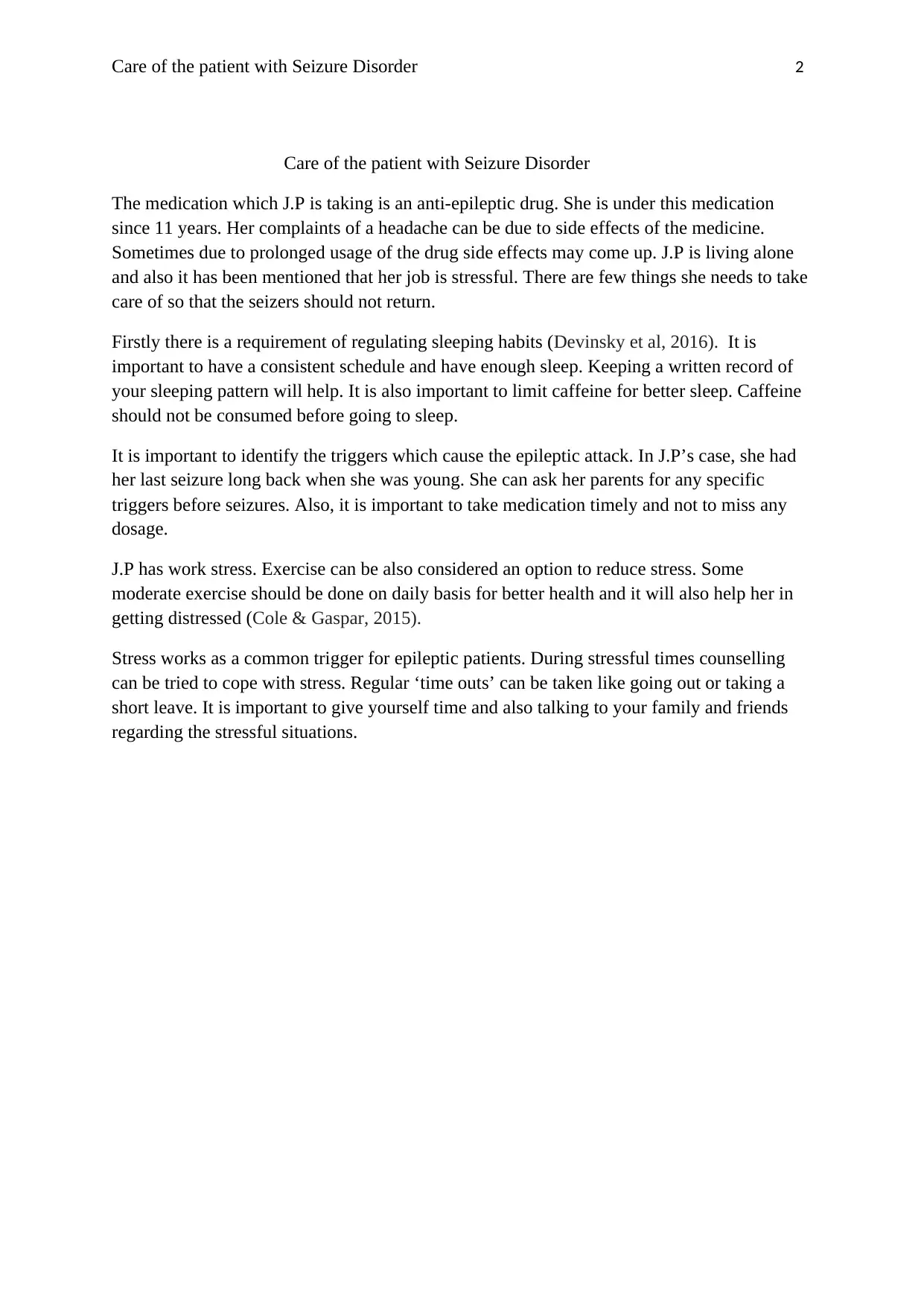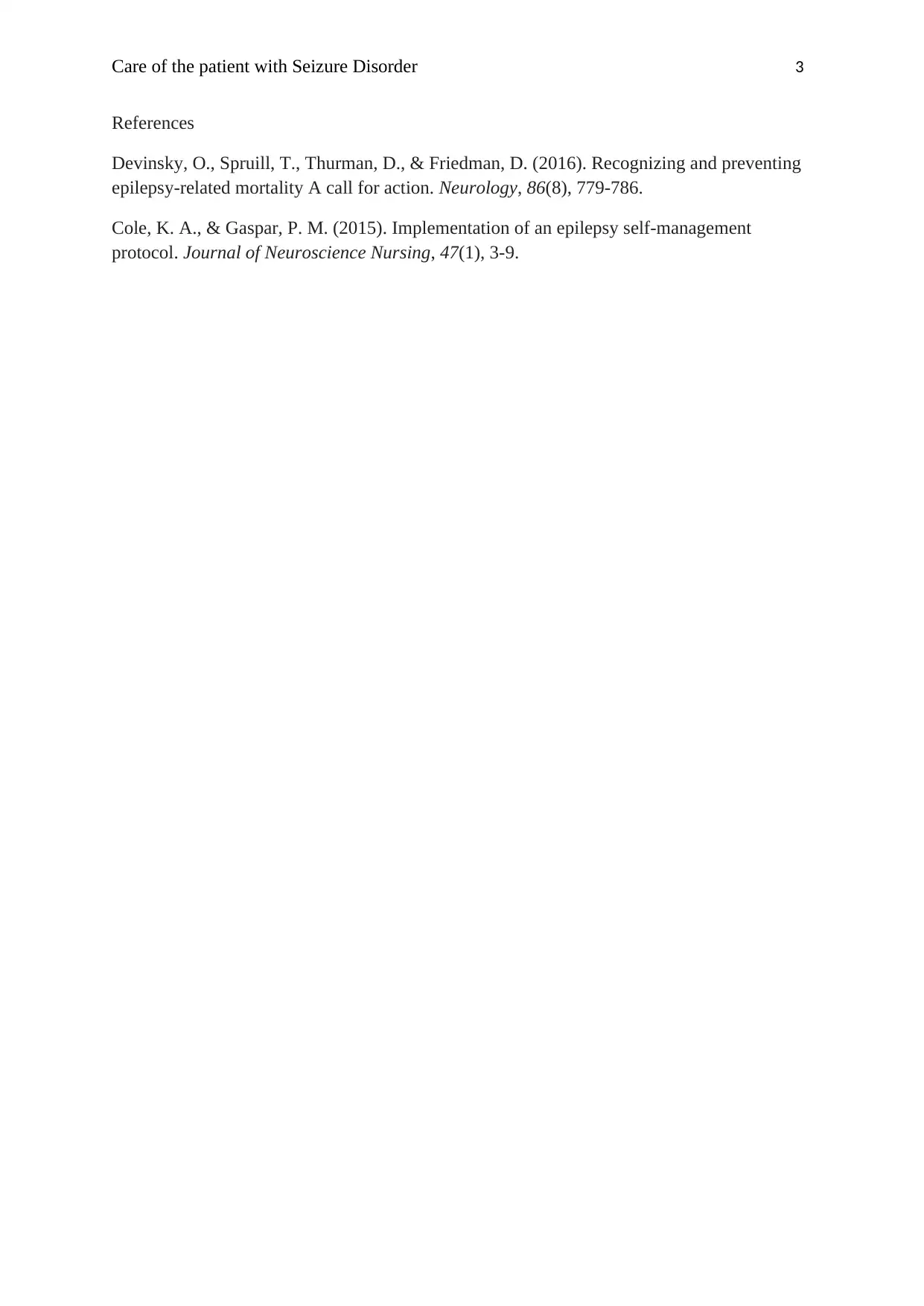Seizure Disorder Patient Care Case Study
VerifiedAdded on 2019/09/20
|3
|421
|140
Case Study
AI Summary
This case study focuses on the care of a patient, J.P., with a seizure disorder who has been on anti-epileptic medication for 11 years. The study highlights the importance of regulating sleep habits, identifying seizure triggers, managing stress through exercise and counseling, and adhering to medication schedules. It emphasizes the need for a holistic approach to patient care, including lifestyle adjustments and stress reduction techniques to prevent the recurrence of seizures. The study also references relevant research on epilepsy management and self-management protocols.
1 out of 3










![[object Object]](/_next/static/media/star-bottom.7253800d.svg)